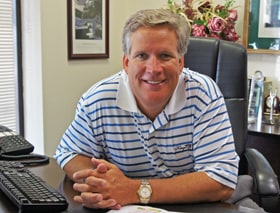Editor’s note: Contributing columnist, Steve Nicklas, expresses his views and insight on various topics in Marketplace column.
__STEVE’S MARKETPLACE__

So who are these pollsters polling, anyway?
You have to wonder, based upon the recent vote over Britain exiting the European Union, widely known as “Brexit.” Polls taken the morning of the vote declared the “stay” camp had a commanding lead (by some 10 percentage points). The outcome was vastly different — 52 to 48 percent, favoring to leave the E.U. So the polls were as accurate as a sleazy tabloid.
The pollsters passed it off as an anomaly. They claimed many who were polled would not disclose how they truly felt, which obviously was to leave, rather than stay. You wonder if there are similarities with a lack of accuracy in the U.S., in polls of many types.
There is polling for politics, for products, for preferences. So much attention and validity is paid to polls, you hope they are accurate. Enough money is spent on them.
Fewer People Have Home Phones/Landlines
By various reports, the primary change with polling has to do with telephones. Fewer people have home phones, preferring instead to use cell phones. The white pages are outdated like dinosaurs, for the most part.
So who really answers the pollsters’ calls, and then spends time to answer a battery of questions. Probably someone sitting at home, with time on his or her hands. And not someone who is busy at work, or who gets home in the evening after a hard day and wants to relax (and certainly not talk to someone identifying himself as a pollster).
They quote the “accuracy” of a poll, measured by percentage points. And they identify several characteristics of each person who was polled. For instance, in a political poll, this might include which party they belong to, and whether they plan to vote. And the assumption that the person answering the questions is telling the truth.
Pollsters reportedly use techniques such as modeling and post-stratification weighting to derive accuracy. And “extensive multivariate regression analysis,” for whatever that is or means.
However, recent surveys indicate there is valid concern in polling techniques. Even with the advent of online polls. Pew Research and others have identified the various challenges facing pollsters today.
Response rates by telephone have declined significantly. People spend more time with digital media, and more of the online time is spent through mobile devices than by laptop computers.
Polling surveys have found that many young, urban groups cannot even be reached by landline. Others show that people reached through online polls are unreachable by phone, either landline or cell. One survey in California revealed that online respondents to polls are more upscale and educated.
There are also the obvious variables of polling. The polling technology. How a question is worded. The perception of the pollster. When and how the poll is taken, and who is willing to answer the poll and who does not.
Pollsters in the U.S. pass off the Brexit polling misstep as a difference in culture, techniques, public perception. They drink tea over there, we drink coffee. They have different accents. But language differences and cultures should not impact the accuracy of polling.
If you poll most people, the accuracy of polling is in question today.

